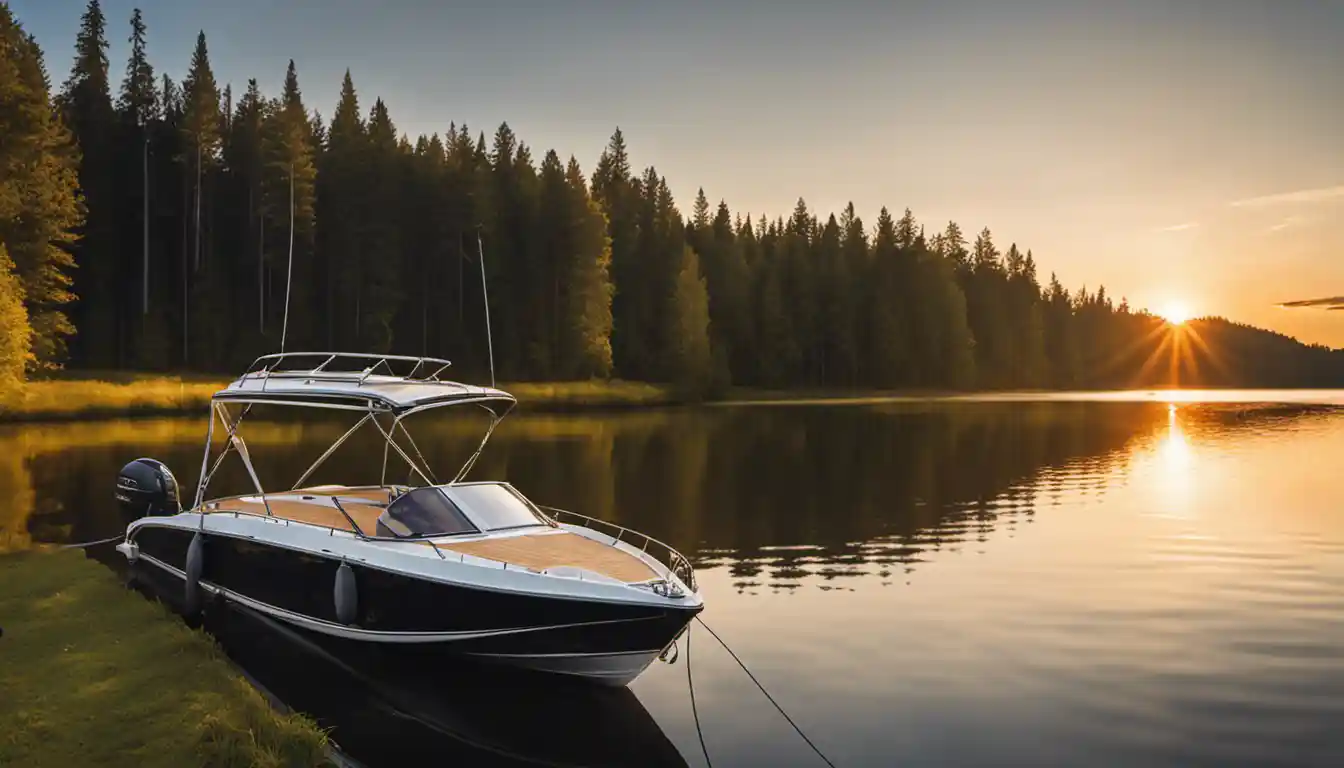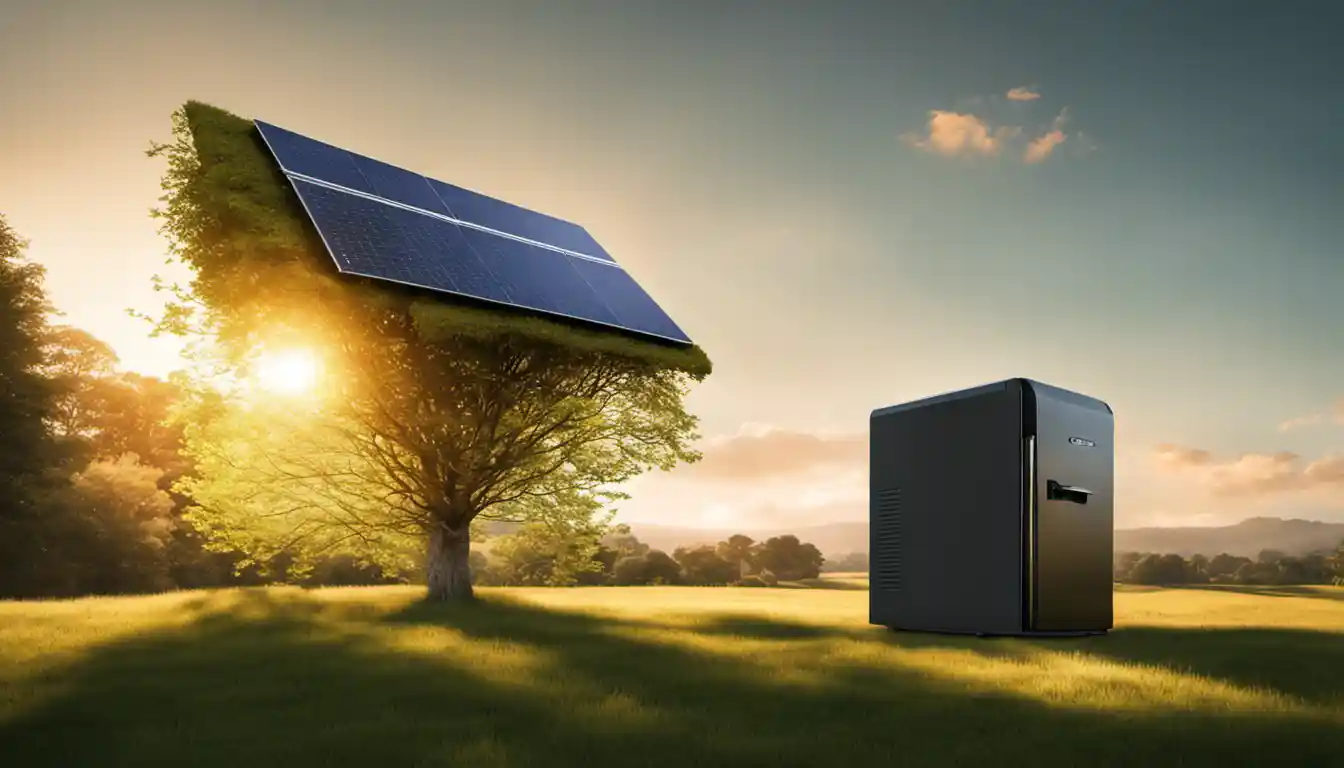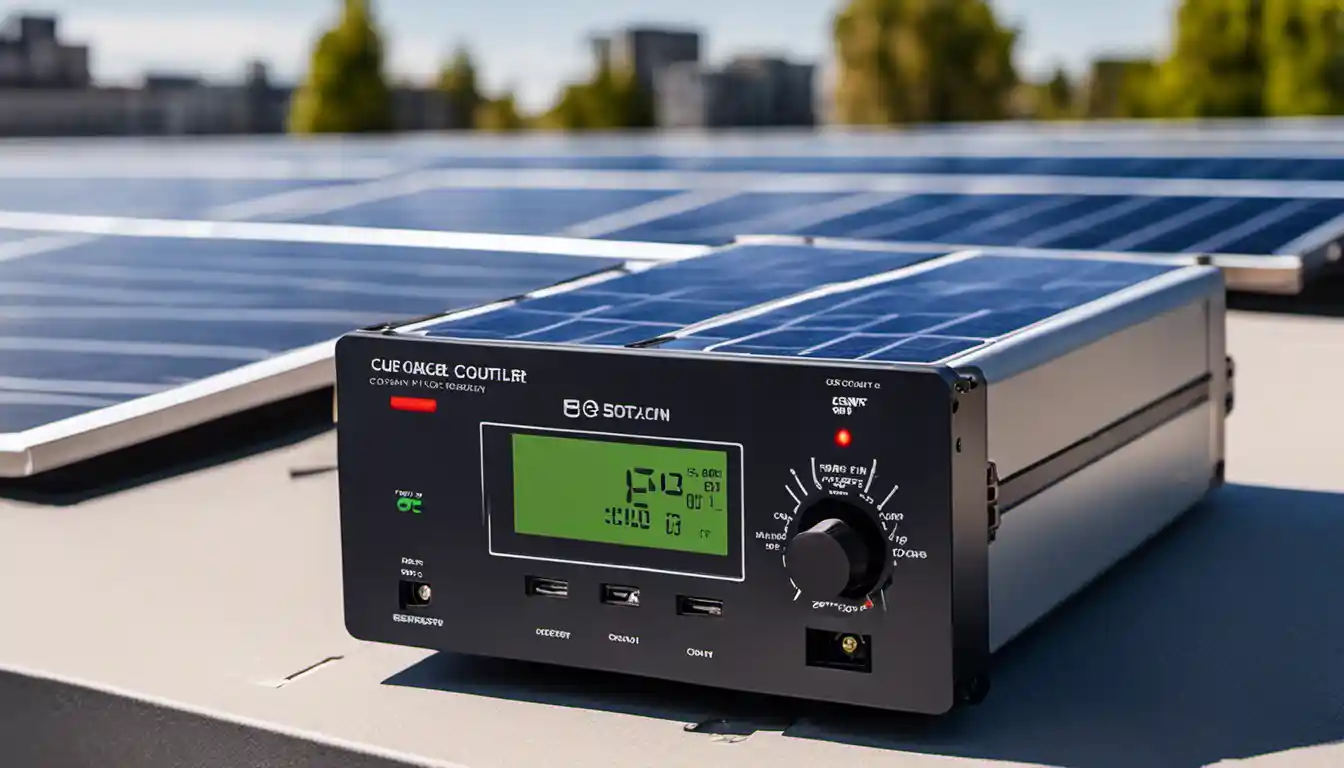Understanding Marine Solar Panels
The best marine solar panels strive to offer superior efficiency, durability, and saltwater resistance. Brands like Renogy, Newpowa, and SunPower often come highly recommended. However, the best choice may depend on the specific power needs, space availability, and budget of your marine vessel.
The Working Principle of Marine Solar Panels
Solar panels, marine or otherwise, work based on the photovoltaic effect. In simple terms, they convert sunlight into electricity. This energy can either be used immediately or stored in batteries for later use. Marine solar panels are incredibly efficient. They utilize the abundant sunlight available on the water, maintaining your boat’s power needs while reducing dependence on fossil fuels.
See also: Solar Panels on Boats (Are They Worth It?)
Importance of Solar Panels for Boats
As a boat owner, you know the frustration of dealing with dead batteries. Having a reliable source of power is critical. Regardless of whether you’re on a fishing trip, sailing adventure, or just relaxing on the boat, marine solar panels serve as a trusty power companion. They power fridges, lights, music systems, and even communication equipment, enhancing your boating experience.
Premium Marine Solar Panels: An Overview
Now let’s delve deeper into some of the best marine solar panels money can buy.
High-Performance CMPower Marine Solar Panel Specifications
CMPower is renowned for its highly efficient yet affordable marine solar panels. Offering a maximum power of 150W and an open-circuit voltage of 22.5V, CMPower panels are capable of charging 12V batteries on both small and large boats. Their weather-resistant design and robust aluminium frame ensure longevity and durable performance.
Key Features of SunPower Maxeon Series for Marine Solar Panels
The SunPower Maxeon series is arguably the pinnacle of solar panel technology. It offers up to 22.3% efficiency, one of the highest in the industry. What sets this series apart are its Maxeon solar cells; they are resistant to corrosion and cracking, promising long-term energy production.
The New SunPower Maxeon Shade Tolerant Series for Biminis
Shade tolerance is a considerable challenge for marine solar installations due to sails, rigging, antennas, and other obstructions. But don’t fret, SunPower Maxeon’s Shade Tolerant Series tackles this issue head-on. Their sophisticated shading software ensures the panels produce energy even in the shade, ensuring optimal power output.
A closer Look at PERC & HJT Cell Series for Marine Solar Panels
PERC (Passivated Emitter and Rear Cell) and HJT (Heterojunction) cells are advanced solar cell technologies that lead in performance and efficiency. In particular, HJT cells, a combination of thin-film and crystalline silicon technologies, stand out for their superior performance in low-light and high-temperature conditions.
Best Marine Solar Panels: Top Recommendations for 2023
Here, we’ll unfold our expert picks for the best marine solar panels of 2023.
Renogy Solar Panels for Boats: Review & Pros/Cons
Renogy marine solar panels top our list, and for good reasons. They offer exceptional durability, high efficiency, and easy installation. Plus, they are ‘wafer-thin,’ hence easily installed on curved surfaces. But like any product, they have their downsides. Their panel size could be too large for smaller boats.
TopSolar Solar Panels for Boats: Review & Pros/Cons

TopSolar presents foldable and lightweight solar panels, making them an excellent choice for portability. However, they are not the most efficient (10-12%), so they may not suit boats with heavy power needs.
Eco-Worthy Solar Panels for Boats: Review & Pros/Cons
Eco-Worthy is a budget-friendly option offering considerable power output and durability. However, they may require professional installation as the instructions are not very clear.
Sunway Solar Panels for Boats: Review & Pros/Cons
Sunway solar panels offer an impressive combination of affordability and efficiency and are particularly useful for maintaining battery health. Their downside is a shorter-than-average lifespan.
EF Ecoflow Solar Panels for Boats: Review & Pros/Cons
These are some of the best marine flexible solar panels. They are lightweight, foldable, and ideal for boats with limited space. But they have a lower power output, so they are best for minor power needs.
Types of Marine Solar Panels
Flexible Marine Solar Panels: An Overview
Flexible solar panels are thin, lightweight, and can bend to fit curved surfaces like tops, roofs, or arches on a boat. They are the best marine flexible solar panels for adventurous boaters due to their easy manipulation for optimal sunlight capture.
Semi-Rigid Marine Grade Walk On Solar Panels
Walk-on solar panels have a rigid surface and an anti-slip coating allowing you to safely traverse them. They are a tad heftier than their flexible counterparts but offer higher efficiency.
Rigid Marine Grade PV Solar Panels
These are the most durable type available and can withstand extreme weather conditions. Their high efficiency makes them a top choice for boats with significant power needs.
Understanding Solar Power Requirements for Your Boat
To estimate your boat’s solar power requirements, list all your onboard devices and appliances that require electricity. Determine their wattage and calculate their daily consumption. Sum up their power needs and add a buffer of 20-25% to cover unexpected power usage or inefficiencies.
Decoding Solar Power Needs for Boats
Suppose a small boat uses a fridge (40W), lights (10W), a radio (5W), and a water pump (10W), all running for about 8 hours. The total power requirement would be about 520Wh per day. Given this, a 100W solar panel under optimal conditions would suffice.
Using a 120 Watt Panel to Power a Refrigerator: A Feasibility Study

A 120W solar panel can charge a 12V battery with about 7 amps per hour under perfect sunlight conditions. Therefore, it should be able to power a fridge consuming around 35-40 amps daily. However, consider variables such as sunlight hours, angle of sunlight, and energy efficiency of the refrigerator.
Assembling and Mounting Marine Solar Panels
With the right tools and instructions, mounting and assembling solar panels on your boat can be a gratifying DIY project.
Guide to Assembling Marine Solar System Kits
A typical kit comes with solar panels, a charge controller, mounting brackets, and wiring cables. The first step is connecting the solar panel to the charge controller, then the controller to the batteries using the cables provided. Always refer to the manufacturer’s instructions for accurate setup.
Mounting Flexible Solar Panels to Bimini or Dodger: A How-To Guide
For flexible solar panels, you can sew them into a canvas using twist locks or common snaps. Another popular method is gluing the panel onto the surface using a marine adhesive. Remember to keep them at an angle for maximum sunlight exposure.
Choosing the Best Marine Solar Panels for Your Boat
Things to Know Before Buying Premium Solar Panels for Boats
In pursuit of the best marine solar panels, consider your power needs, budget, available space, and preferred type of solar panel. Look out for factors like efficiency, durability, weather resistance, and warranty. And don’t forget to check user and expert reviews.
Differences between a Cheap and an Expensive Marine Solar Panel
Expensive marine solar panels often have higher efficiency, durability, and advanced features like shade tolerance. They may also have better customer support and longer warranties. Cheap solar panels, while affordable, may lack these features and employ substandard components leading to reduced lifespan and efficiency.
Solar Panels for Boats: Installation and Maintenance
While installation procedures vary, here are general steps to install marine solar panels:
Guide to Installing Solar Panels for Boats
-
Decide the location: Preferably high and out of the way to catch maximum sunlight and avoid shade.
-
Install brackets: Some solar panels come with brackets. If not, purchase them separately.
-
Mount the solar panel: Fasten the panel onto the brackets. Ensure it’s firmly fixed to withstand harsh marine conditions.
-
Run the cables: Connect the solar panel to your boat’s electrical system.
-
Test the system: With everything properly connected, check your system to ensure it’s working correctly.
Caring for Your Solar Panels: Enhancing Lifetime and Efficiency
Proper maintenance of your solar panels can significantly enhance their lifespan and efficiency. Clean them regularly to ensure they absorb maximum sunlight. Check the wires for any signs of damage or corrosion. Cover the panels to protect them when not in use.
Decoding Charge Controllers for Solar Panels

A charge controller is essential to prevent your batteries from overcharging and also extends their lifespan.
Understanding Basic Charge Controllers
Basic controllers (PWM type) are inexpensive but less efficient. They’re suitable for small systems with one or two 12V panels.
Distinguishing Features of Mid-Range Charge Controllers
Mid-range charge controllers (like MPPT type) offer higher efficiency and flexibility. They can handle high voltage panels and offer better performance in cold weather.
Max Power Charge Controllers: Explained
Max Power charge controllers offer the highest efficiency and have sophisticated features like remote monitoring and adjustable control parameters. They are usually pricey but well-suited to larger systems with high power needs.
Conclusion
Choosing the Best Marine Solar Panels for Your Needs
Opting for solar power is one of the best decisions a boat owner can make. It offers an efficient, eco-friendly, and low-maintenance power solution for your marine adventures. And with the best marine solar panels, you will be all set to set sail.
Frequently Asked Questions about Marine Solar Panels
What is the impact of mounting style on power output?
Mounting style significantly affects power output. Solar panels must be unobstructed and positioned at an angle to receive maximum sunlight.
How much solar power do I need on my boat?
This depends on your power needs, which you can ascertain by calculating the daily power usage of your onboard devices and appliances.
Can I power my refrigerator with a 120-watt panel?
Yes, but its efficiency depends on several factors including the efficiency of the fridge, hours of sunlight, and energy losses in the system.



